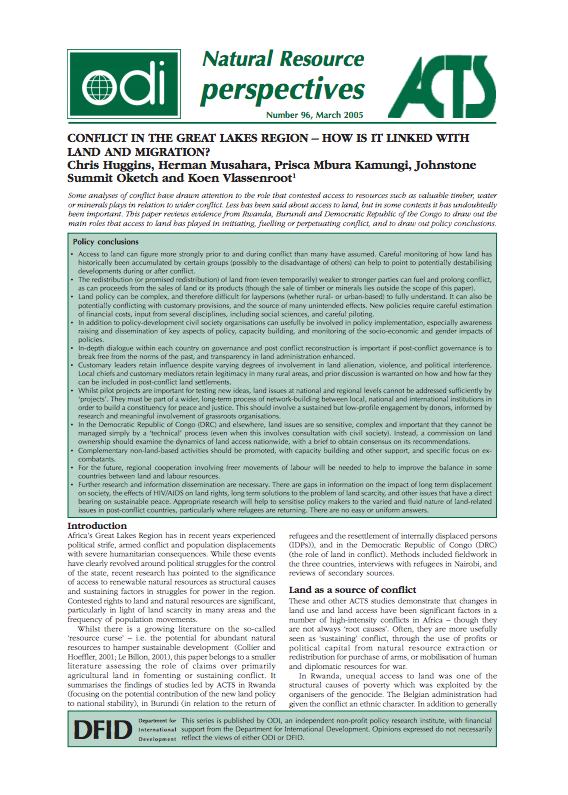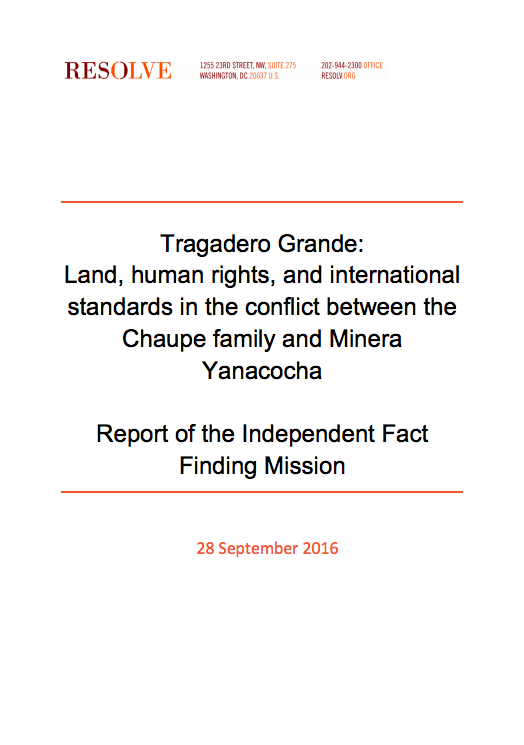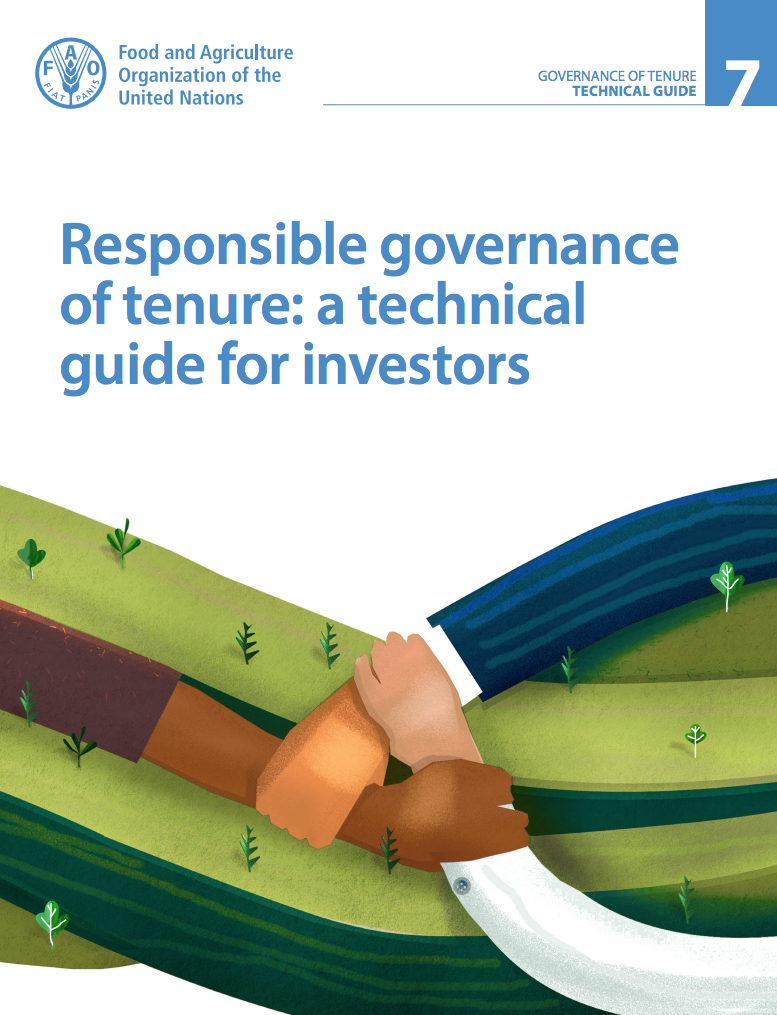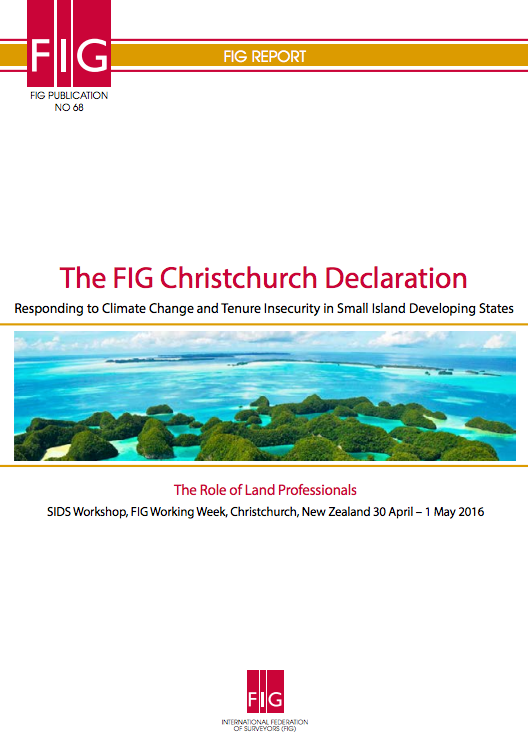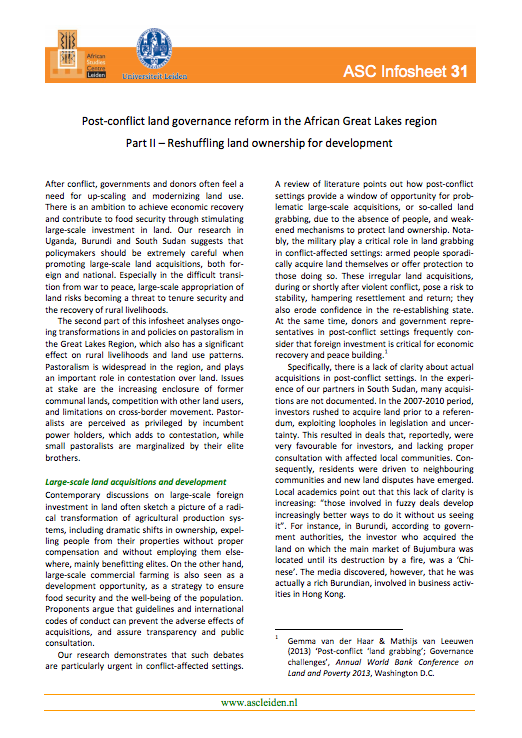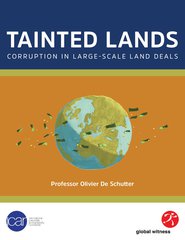Conflict in the Great Lakes Region - how is it linked with land and migration
Africa’s Great Lakes Region has in recent years experienced
political strife, armed conflict and population displacements
with severe humanitarian consequences. While these events
have clearly revolved around political struggles for the control
of the state, recent research has pointed to the significance
of access to renewable natural resources as structural causes
and sustaining factors in struggles for power in the region.
Contested rights to land and natural resources are significant,

